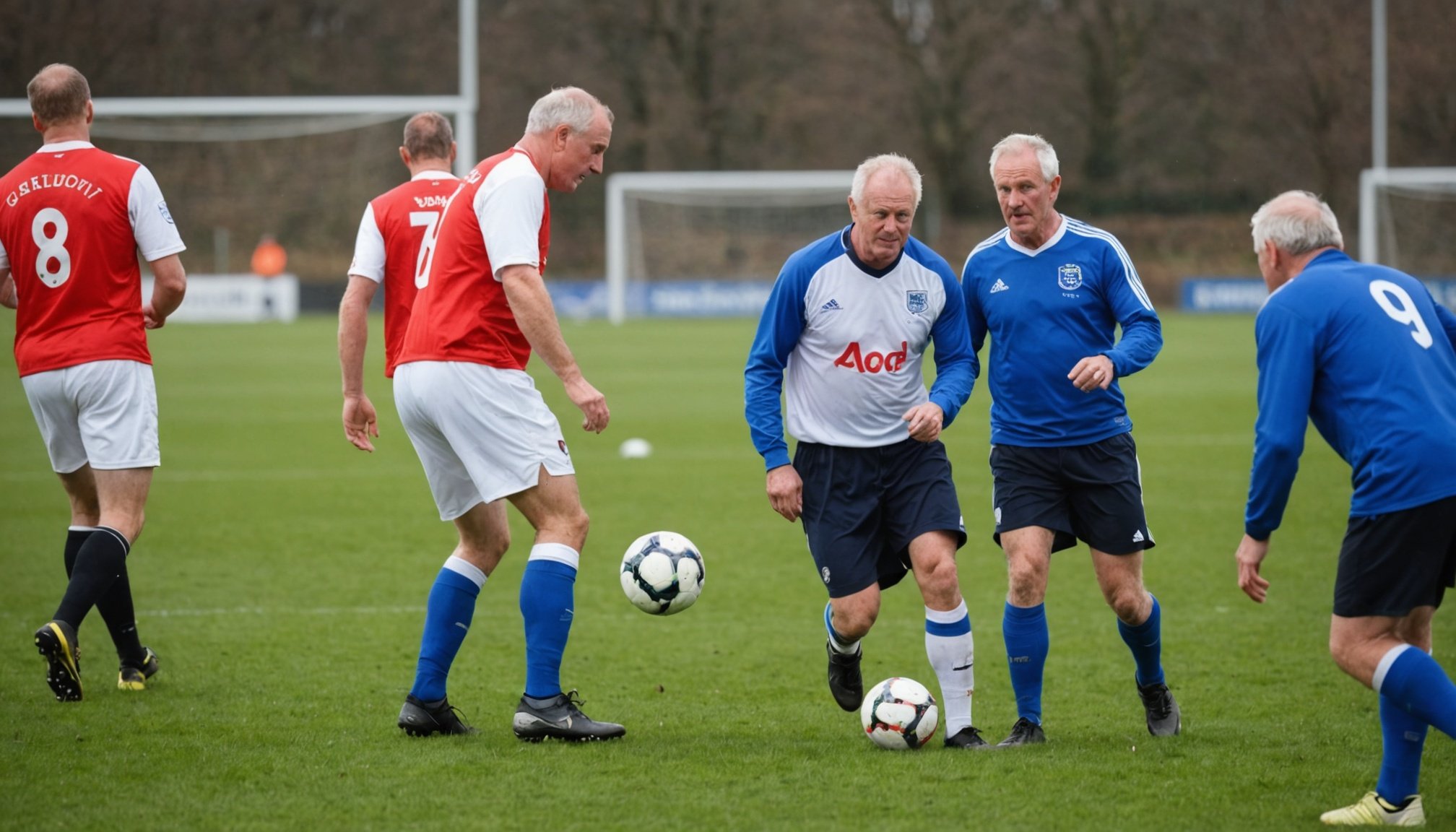The world of football is exhilarating and captivating, drawing millions of fans and aspirants across the globe. However, the journey of a football player does not end with retirement. In the UK, retired football players often face numerous challenges as they transition into life off the pitch. The impact of years spent in professional sports can lead to both physical and mental health issues. Hence, it is crucial to understand the support systems in place designed to assist these athletes in navigating their post-football lives. In this article, we will explore the various measures implemented to support retired football players in the UK.
The Role of the Professional Footballers’ Association (PFA)
The Professional Footballers’ Association (PFA) plays a pivotal role in supporting retired football players in the UK. Established in 1907, the PFA is the trade union for professional footballers, serving as an advocate for players, both during and after their careers. One of the most significant ways the PFA supports retired players is through its extensive welfare programs.
This might interest you : What impact does player loyalty have on the success of UK football clubs?
The PFA offers various services aimed at addressing the needs of retired players, including counseling and mental health support. Many retired players experience struggles with their mental well-being, stemming from the pressures of their playing days or the sudden change in lifestyle post-retirement. Through its dedicated welfare officers, the PFA provides confidential support, helping former players cope with issues such as anxiety and depression.
Additionally, the PFA organizes workshops and seminars that focus on personal development and career transition. These initiatives are designed to equip retired players with essential skills, allowing them to pursue new career paths outside of football. This support is crucial, given that many players find it challenging to adapt to life without the sport they have known for so long.
Also read : Essential Elements for Crafting an Effective Youth Football Training Program to Boost Skill Development
Furthermore, the PFA has established a financial assistance program, which can be a lifeline for retired players facing financial difficulties. The organization provides grants and support to those in need, ensuring that former players can maintain a decent quality of life after their football careers end. Overall, the PFA remains a cornerstone of support for retired football players in the UK, ensuring that they have access to vital resources and assistance.
Health and Wellbeing Initiatives
Health and wellbeing are paramount for retired football players, and several initiatives have emerged to prioritize their physical and mental health. Retired players often face long-term health issues resulting from injuries sustained during their careers, making access to ongoing medical care crucial.
One significant measure is the collaboration between the PFA and various health organizations to provide retired players with access to medical professionals. This partnership allows retired players to receive assessments, treatment, and rehabilitation for injuries that may have been neglected during their playing days. Regular health check-ups and screenings are also encouraged, helping players to stay on top of their health as they age.
Moreover, the PFA has launched mental health initiatives, recognizing the importance of mental fitness in overall well-being. The availability of therapists who specialize in sports-related issues has been a game-changer for many retired players. These professionals not only provide counseling but also engage players in rehabilitative exercises tailored to their unique experiences.
In addition to professional support, the PFA emphasizes the importance of physical fitness post-retirement. They encourage retired players to maintain an active lifestyle, often organizing fitness programs and community events that promote physical activity among former players. Engaging in sports, even recreationally, helps retired players maintain their physical health and can significantly improve their mental state, providing a sense of belonging and purpose.
Overall, the focus on health and wellbeing is multifaceted, addressing both the physical injuries and mental health challenges that retired football players face, allowing them to lead healthier, more fulfilling lives.
Educational and Career Transition Support
Transitioning from a career as a professional football player to a civilian job can be a complex process. Recognizing this challenge, various support structures have been established to help retired players adapt to their new realities. The emphasis on education and skill development is paramount in ensuring retired players can successfully transition into new careers.
One of the critical programs is the PFA’s education initiative, which offers funding for further education and training. Retired players are encouraged to pursue degrees or vocational training in fields that interest them. This financial support can be instrumental in helping players gain qualifications that will enable them to secure employment post-football.
In addition to formal education, the PFA provides workshops and courses focused on transferable skills such as leadership, communication, and teamwork. These skills are essential in the workplace and can help retired players adapt their unique experiences from football into valuable assets in various industries. Networking opportunities are also facilitated, connecting retired players with potential employers and mentors who can guide them through their career transitions.
The success of these educational initiatives is evident in the number of retired players who have successfully entered various professional fields, including coaching, sports management, and media. These programs not only provide the necessary tools for a successful transition but also instill a sense of purpose and fulfillment, as many players find new passions beyond the pitch.
Ultimately, the support provided in terms of education and career transition is vital in helping retired football players navigate the complexities of life after football, ensuring they have the skills and confidence needed to thrive.
Community and Social Engagement Programs
Social engagement is an essential aspect of life for retired football players. After years of consistent interaction with teammates and fans, the sudden lack of social structure can lead to feelings of isolation. To combat this, various community and social engagement programs have been implemented to connect retired players with one another and with their local communities.
The PFA facilitates numerous events and gatherings that encourage retired players to come together, share their experiences, and foster friendships. These social activities range from informal meet-ups to organized sporting events, where former players can engage in friendly competitions or simply enjoy each other’s company. These gatherings provide a supportive environment where players can discuss common challenges and celebrate their shared experiences.
Additionally, retired players are encouraged to give back to their communities through outreach initiatives. Many former players take on roles as coaches or mentors in local youth programs, sharing their knowledge and expertise with aspiring athletes. This involvement not only benefits the younger generation but also allows retired players to maintain a connection to the sport they love.
Community engagement also extends to charitable work, with many retired footballers participating in fundraising activities for various causes. These initiatives often focus on health, education, and social welfare, allowing players to leverage their influence for positive change. Engaging with the community provides retired players with a sense of significance and purpose, helping them adjust to life after football.
Overall, community and social engagement programs play a crucial role in ensuring that retired football players stay connected and continue to contribute positively to society, enhancing their overall well-being.
In conclusion, the support measures in place for retired football players in the UK are extensive and multifaceted. From the crucial work of the Professional Footballers’ Association to health initiatives, educational support, and community engagement programs, these systems are designed to assist players during their transition from professional sports to everyday life. As we have explored, these measures not only address the physical and mental health needs of retired players but also provide them with the necessary tools to thrive in new careers and maintain meaningful connections with their peers and communities. By prioritizing the well-being of retired football players, we ensure that their contributions to the sport and society are recognized and valued long after their playing days are over.











